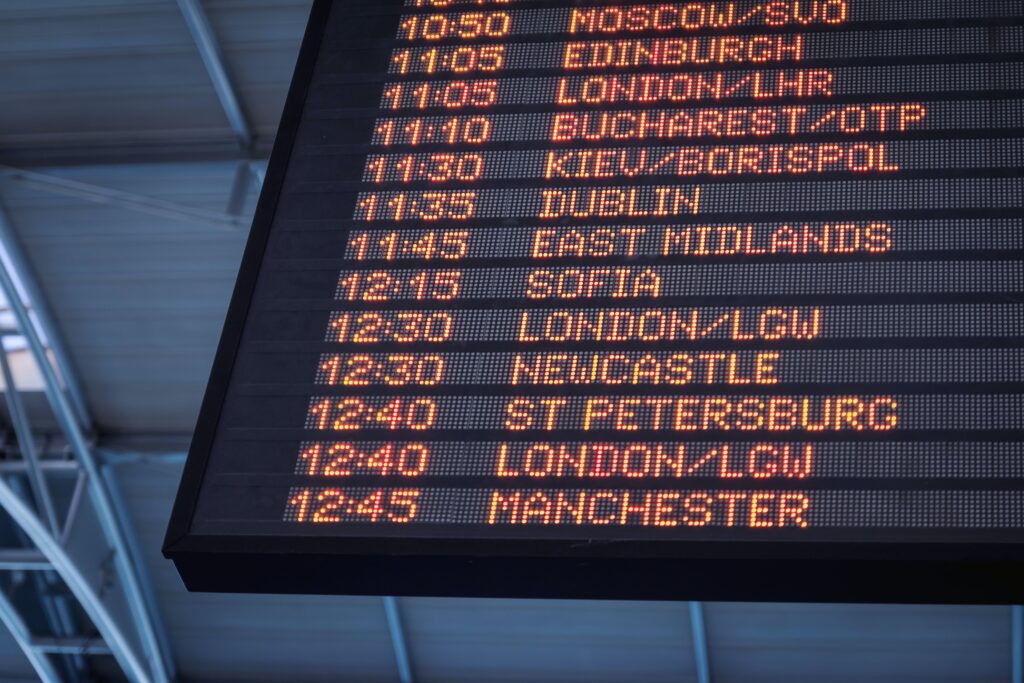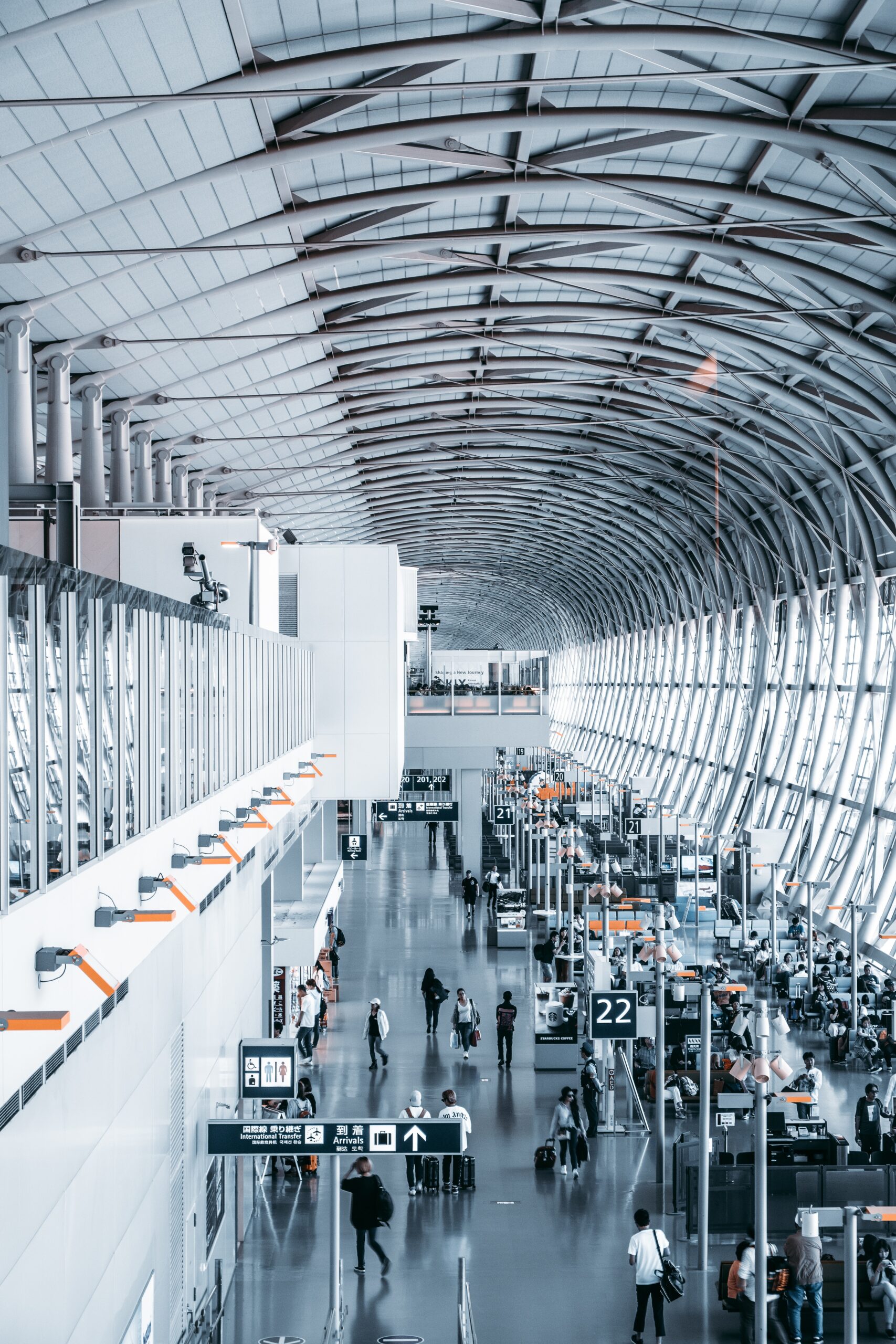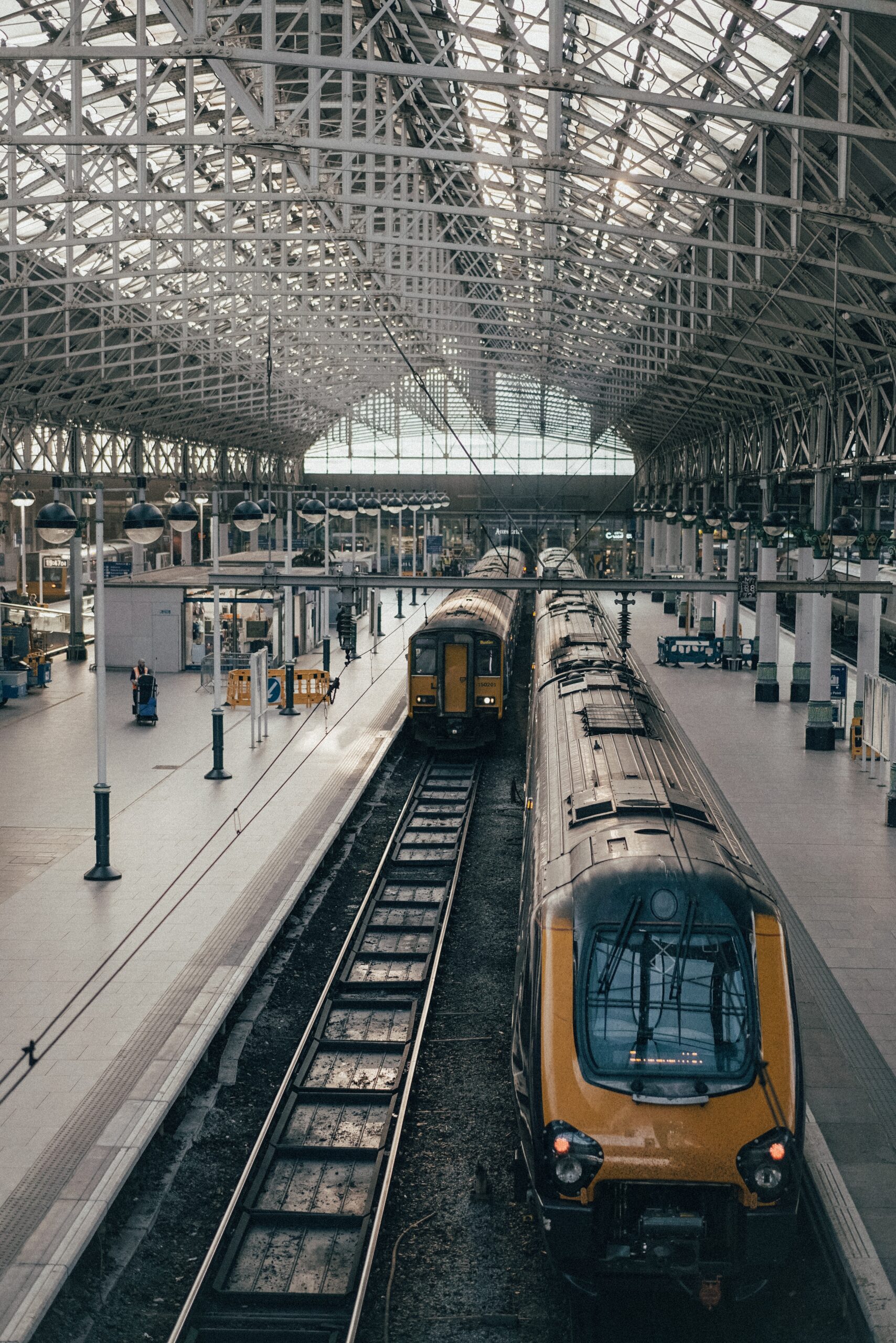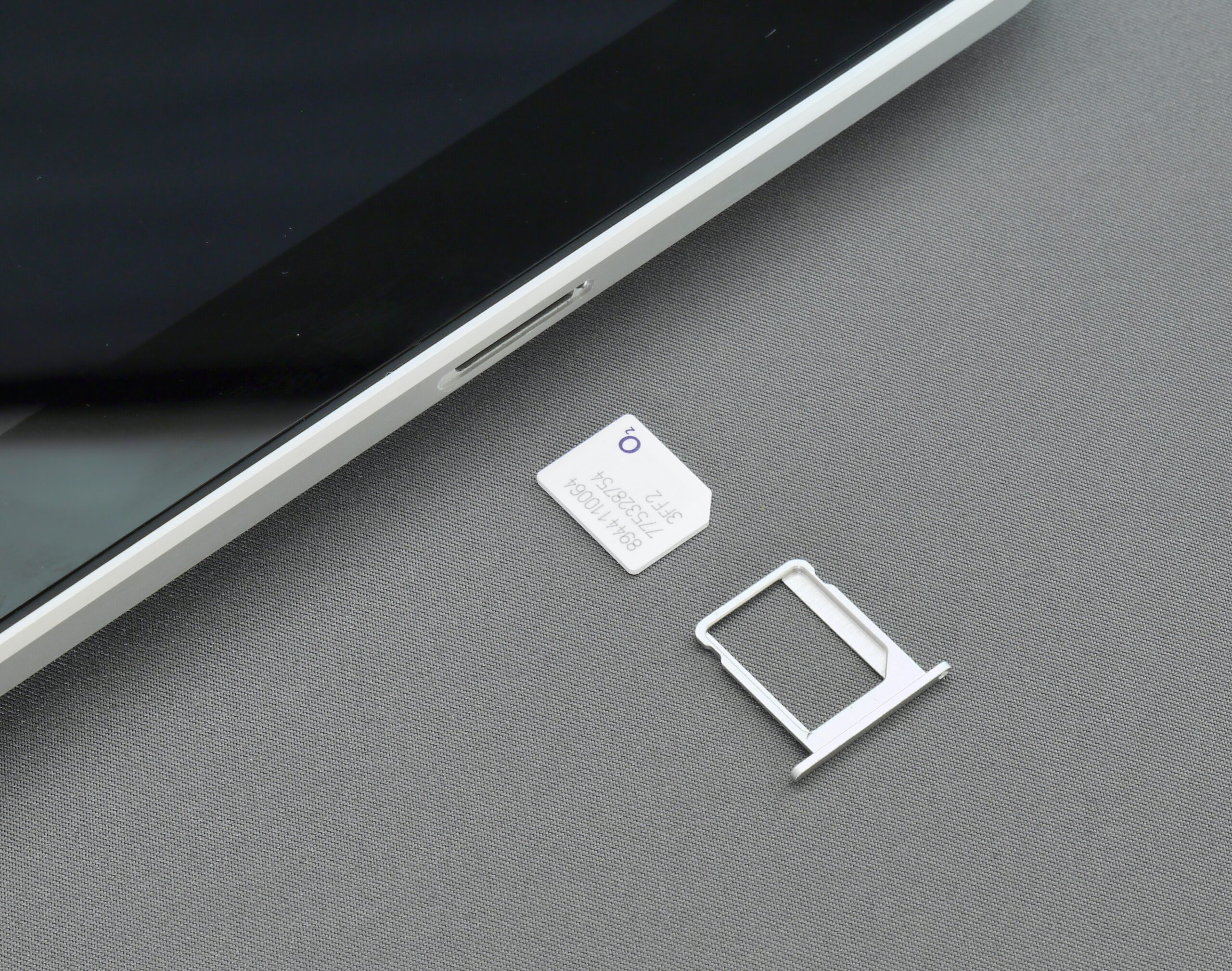Morocco Transportation Guide
Morocco Transportation Guide: Transportation includes efficient trains, buses, and taxis. Navigate bustling medinas on foot, embracing diverse and scenic travel experiences.


Morocco Transportation Guide – International Airports
Morocco has several international airports that serve as key gateways to the country, facilitating both domestic and international flights. Some of the major international airports in Morocco include:
Mohammed V International Airport (Casablanca Airport): Located in Casablanca, Morocco’s largest city, Mohammed V International Airport is the busiest airport in the country and a major international gateway. It offers numerous international flights to destinations around the world.
Menara Airport (Marrakech Airport): Serving the popular tourist destination of Marrakech, Menara Airport handles a significant number of international flights, particularly from European cities.
Agadir–Al Massira Airport: Located in Agadir, this airport serves as a key entry point for tourists visiting southern Morocco and the nearby beach resorts.
Fès–Saïs Airport: Fès–Saïs Airport, located in Fès, offers international flights connecting the city to various destinations in Europe and the Middle East.
Rabat–Salé Airport: Serving both Rabat, the capital of Morocco, and nearby Salé, this airport operates international flights connecting the region to European cities.
Tangier Ibn Battouta Airport: Located in Tangier, this airport provides international flights and plays a significant role in connecting Morocco to Southern Spain.
Nador International Airport: Nador Airport, situated in Nador in northeastern Morocco, handles international flights, especially to and from European destinations.
Oujda–Angads Airport: Serving Oujda in eastern Morocco, this airport operates international flights connecting the city to European destinations.
Agadir Inezgane Airport: Located near Agadir, this airport primarily serves domestic flights but also offers some international connections.
Mogador Airport (Essaouira Airport): Mogador Airport in Essaouira serves the coastal city and offers international flights to a limited number of European destinations.
National Airports
Morocco has several national airports, which primarily serve domestic flights within the country. These airports are essential for connecting different regions of Morocco. Some of the major national airports in Morocco include:
Ibn Batouta Airport (Tangier): Ibn Batouta Airport, located in Tangier, serves as a national airport, connecting Tangier to other Moroccan cities.
Fès–Saïs Airport (Fès): Fès–Saïs Airport in Fès operates domestic flights, facilitating travel between Fès and other cities within Morocco.
Rabat–Salé Airport (Rabat): This airport, located near Rabat and Salé, serves as a national airport connecting the capital city and the surrounding region to other Moroccan cities.
Ouarzazate Airport: Ouarzazate Airport primarily handles domestic flights, providing air connectivity to and from Ouarzazate in southern Morocco.
Beni Mellal Airport: Beni Mellal Airport serves the city of Beni Mellal and operates domestic flights connecting the city to other parts of Morocco.
Laâyoune Hassan I Airport (Laâyoune): Laâyoune Hassan I Airport serves Laâyoune and the southern regions of Morocco, offering domestic flights within the country.
Tétouan–Sania Ramel Airport: Located in Tétouan, this airport provides air travel options for the northern region of Morocco, connecting it to other Moroccan cities.
Moulay Ali Cherif Airport (Errachidia): Errachidia’s Moulay Ali Cherif Airport operates domestic flights, connecting Errachidia to other cities in Morocco.
Oujda–Angads Airport (Oujda): Oujda–Angads Airport in Oujda handles domestic flights, connecting the city to other Moroccan destinations.
Hassan I Airport (El Aaiún): El Aaiún’s Hassan I Airport serves the city and the surrounding region in southern Morocco, offering domestic flights within the country.
Morocco Transportation Guide – Trains
Morocco has an extensive and well-developed railway network operated by the state-owned company ONCF (Office National des Chemins de Fer). The railway system in Morocco provides an efficient means of transportation for both passengers and freight. Here are some key aspects of the train services in Morocco:
Passenger Trains: Morocco offers passenger train services that connect major cities and towns across the country. These services are known for their comfort and affordability.
High-Speed Rail: Morocco has invested in high-speed rail infrastructure to improve travel within the country. The Al Boraq high-speed train service connects cities like Tangier, Rabat, Casablanca, and Marrakech, reducing travel times significantly.
Regional Trains: In addition to long-distance routes, there are regional train services that serve local and suburban areas, making it convenient for daily commuters and travelers to access nearby towns and cities.
International Connections: Morocco’s rail network connects to neighboring countries. For example, there are international train services that connect Morocco to Algeria and Spain.
Comfort and Services: Moroccan trains offer various classes of service, including standard, first-class, and sleeper cars for overnight journeys. Passengers can enjoy amenities like air conditioning and dining services on some routes.
Safety: Morocco’s railways have a reputation for safety, making train travel a secure option for tourists and locals alike.
Ticketing and Schedules: Passengers can purchase train tickets at railway stations, online through the ONCF website, or from authorized agents. Train schedules are generally reliable, but it’s advisable to check for the latest information and book tickets in advance, especially during peak travel seasons.
Languages: Information and announcements on Moroccan trains are typically provided in Arabic and French, but many train staff members may have some knowledge of English, especially in tourist areas.


Morocco Transportation Guide – Buses
Morocco has a well-developed bus transportation system that serves both urban and intercity travel. Buses are a popular and affordable means of getting around the country. Here are some key aspects of bus transportation in Morocco:
Urban Buses: Major cities in Morocco, including Casablanca, Rabat, Marrakech, and Fes, have comprehensive urban bus systems. These systems provide essential public transportation within the cities, making it easy for residents and tourists to navigate.
Interurban Buses: Interurban buses operate between cities and towns, connecting different regions of Morocco. These buses are commonly used for traveling between cities and are often operated by various private companies.
Long-Distance Buses: For longer journeys, Morocco has long-distance or intercity buses that provide connections between major cities and regions. These buses are comfortable and equipped for extended travel.
Private Bus Companies: Several private bus companies operate intercity and long-distance bus services in Morocco. These companies offer various classes of service, including standard, semi-luxury, and luxury options, allowing passengers to choose their preferred level of comfort.
Rural Routes: Buses play a vital role in connecting rural and remote areas to larger towns and cities. They are essential for residents in remote regions to access services and facilities in urban centers.
Ticketing: Passengers can purchase bus tickets at bus stations, online, or from authorized ticket vendors. Ticket prices vary depending on the distance traveled and the class of service chosen.
Links of interest
Airlines:
Royal Air Maroc
Air Arabia Maroc
RAM Express
Trains:
ONCF – Office National des Chemins de Fer du Maroc
Buses:


We recommend
Morocco travel tips
Our guide offers essential Morocco travel tips and insights for an unforgettable journey. Plan your trip with us!
Morocco Transportation Guide – SIM Cards
Providers: Morocco has telecom providers like Maroc Telecom, Orange, and Inwi offering SIM cards for tourists.
Registration: Provide identification for SIM card registration, a mandatory process in Morocco.
Coverage: Confirm network coverage, especially if traveling to remote areas for reliable connectivity.
Top-Up: Recharge with prepaid credit available at local stores, kiosks, or through mobile apps.
Data Packages: Choose from various data packages based on your internet usage needs.
Unlocking Phones: Ensure your phone is unlocked to use Moroccan SIM cards.
Internet Speeds: Morocco generally has good internet speeds; choose plans for seamless connectivity.
Wi-Fi Availability: Wi-Fi is prevalent in hotels and cafes; use it to conserve mobile data.
Emergency Numbers: Save local emergency numbers, and know the location of the nearest embassy or consulate.
Language: Communicate your SIM card needs using basic French or Arabic phrases.
Dual SIM Phones: Consider using a dual SIM phone to keep your home country number active.
Validity Period: Be aware of the validity period of your SIM card and recharge accordingly.
Mobile Apps: Download the official apps of the telecom providers for convenient balance checks and top-ups.
Cultural Sensitivity: Respect local customs when dealing with mobile devices in public spaces.
Documentation: Carry a copy of your ID and any SIM card registration documents for verification if needed.
Lost or Stolen SIM: Report a lost or stolen SIM card promptly to prevent unauthorized use.
Data Roaming: Use Wi-Fi where available to conserve data and avoid unnecessary roaming charges.
Currency Converter
Currency Converter EUR/USD: Sun, 8 Jun.
Unit Converter
Morocco Transportation Guide – Maps
What map do you need?
Choose your destination
More information about this country







